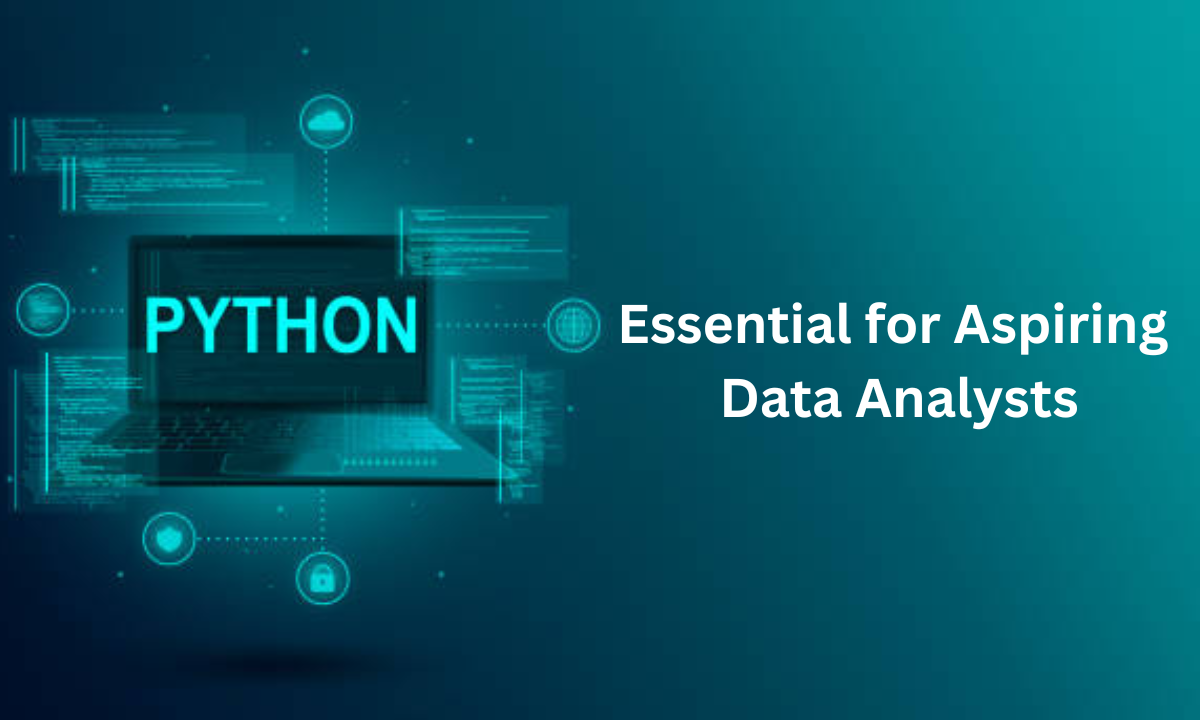Table of contents
|
1. User-Friendly Syntax and Learning Curve |
|
2. Supportive Community and Resources |
|
3. Integration with Data Analytics Libraries |
|
4. Flexibility for Multiple Data Formats |
|
5. Powerful Data Visualization Tools |
|
6. Seamless Integration with Databases and APIs |
|
7. Scalability for Advanced Analytics |
|
8. Cross-Platform Compatibility |
|
9. Open-Source and Cost-Effective |
|
10. Increasing Demand in the Job Market |
|
11. Real-Time Analysis and Automation |
|
12. Foundation for Data-Driven Decision Making |
|
13. Python as a Core Component of Analytics Education |
|
14. Conclusion: The Role of Apponix in Your Data Analytics Journey |
In today’s data-driven environment, organizations are seeking skilled professionals who can extract meaningful insights from large datasets. One of the most powerful tools that enables this transformation is Python, a programming language that has become a must-know for anyone looking to build a successful career as a data analyst.
Python's simplicity, versatility, and extensive libraries have made it a staple in the data analytics industry. For an aspiring data analyst, Python is more than just a programming language—it is the gateway to interpreting data, building models, and presenting findings that drive business decisions. Let’s dive deep into why Python is crucial for data analysis.
User-Friendly Syntax and Learning Curve
One of the major reasons Python stands out in the analytics world is its readable and intuitive syntax. For beginners, this means they can focus more on solving problems rather than struggling with complex code structures. This feature is especially valuable for individuals entering the data analyst field without a strong programming background. Python makes it easier to quickly understand, modify, and execute code.
Supportive Community and Resources
Python has one of the largest and most active developer communities. This translates into abundant resources, including libraries, tutorials, forums, and documentation. For a data analyst using Python, help is always a few clicks away. Whether troubleshooting errors or learning new techniques, analysts benefit from a collaborative environment that fosters continuous improvement and knowledge sharing.
Integration with Data Analytics Libraries
A key advantage of Python in the data analytics domain is its compatibility with a wide range of data manipulation, visualization, and machine learning libraries. These tools significantly reduce the time and effort needed for performing complex analytical tasks. The availability of these libraries equips a data analyst with capabilities to clean, analyze, visualize, and even predict data trends effectively.
Flexibility for Multiple Data Formats
Data comes in various formats, such as CSV, JSON, Excel, SQL databases, and more. Python provides built-in and third-party libraries to easily handle all these formats. This flexibility is crucial for a data analyst using Python, as it allows seamless access and processing of data from multiple sources, regardless of the structure or complexity.
Powerful Data Visualization Tools
Data storytelling is a vital skill for any data analyst, and Python offers robust libraries that assist in visualizing data insights. With the ability to create interactive, aesthetically appealing graphs, Python enables analysts to communicate findings in a compelling and digestible manner. Visualization tools help transform raw numbers into actionable insights for stakeholders.
Seamless Integration with Databases and APIs
In the real world, data often resides in external systems or flows through web services. Python allows data analysts to connect easily with APIs, relational databases, and cloud platforms. This facilitates real-time data collection and analysis, improving the speed and relevance of insights generated. Python’s adaptability ensures analysts can work within any data ecosystem.
Scalability for Advanced Analytics
As professionals grow in their roles, their analytical responsibilities expand. Python provides a smooth transition from basic data analysis to more complex tasks like machine learning and artificial intelligence. This scalability ensures that a data analyst using Python can continue to upskill and remain competitive in the evolving job market. Python’s framework supports career growth without the need to switch to another language or tool.
Cross-Platform Compatibility
Python is platform-independent, meaning code written on one operating system can be executed on another with minimal changes. For data analysts working in diverse IT environments, this compatibility reduces friction and enhances productivity. It also simplifies collaboration among teams using different systems.
Open-Source and Cost-Effective
Being open-source, Python is free to use. This makes it accessible to learners, startups, and enterprises alike. For someone investing in a data analytics course in Pune, this is a key advantage—students can practice, experiment, and build projects without additional software costs.
Increasing Demand in the Job Market
Employers across industries prioritize candidates who can work with Python. Recruiters consistently list Python among the top skills for data analyst roles. This growing demand ensures that mastering Python significantly improves one’s job prospects and salary potential. Python proficiency is often a mandatory criterion in job descriptions for analytical roles.
Real-Time Analysis and Automation
Today’s fast-paced business environment requires data analysts to provide timely insights. Python supports real-time data processing and automation of routine tasks, enabling analysts to focus on strategic activities. From automating reports to building dashboards, Python enhances workflow efficiency and delivers value quickly.
Foundation for Data-Driven Decision Making
Python empowers data analysts to dig deeper into datasets, uncover patterns, and present findings that influence strategic decisions. The language provides a solid foundation for analytical thinking, data-driven reasoning, and result-oriented execution. This makes Python not just a tool but an enabler of organizational growth through informed choices.
Python as a Core Component of Analytics Education
Today’s academic and professional training programs have recognized the importance of Python in data analysis. Many leading institutions offer specialized Python modules in their analytics curricula. Enrolling in a Data analytics course in Pune often includes dedicated training on Python, ensuring that students gain theoretical understanding and practical expertise.
Conclusion: The Role of Apponix in Your Data Analytics Journey
As the demand for skilled data analysts continues to grow, choosing the right training institute becomes critical. Apponix Technologies, a leading IT training provider, offers a comprehensive data analytics course in Pune designed to help aspirants master core concepts and real-world applications.
Their curriculum emphasizes the role of a data analyst using Python, covering essential modules like data preprocessing, visualization, statistical analysis, and automation. The course offers hands-on experience through live projects, personalized mentorship, and industry-recognized certification.
For those looking to break into the data analytics field or upskill their career, Apponix provides the right blend of knowledge, tools, and support. Their expert trainers and career services ensure that students are not only job-ready but positioned for long-term success in the analytics industry.
By choosing Apponix, you're taking a crucial step toward becoming a proficient data analyst—one equipped with the Python skills needed to thrive in the world of data.





